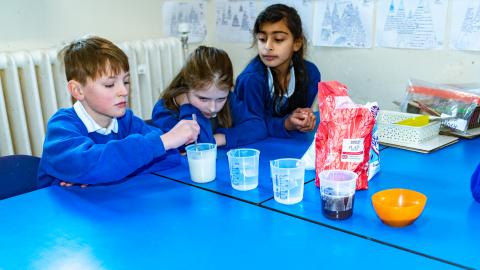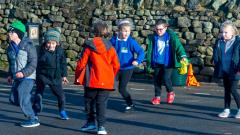|
SCIENCE |
|
Key person responsible - Kirsty Crompton |
|
Intent: At Embsay C of E (VC) Primary School, we recognise the importance of science in everyday life and as a core National Curriculum subject, we give the teaching and learning of Science the prominence it requires. We believe that every child should learn about science in a way that values and encourages their natural curiosity, enthusiasm and interest. They will be encouraged to ask and answer questions, explore and make connections in order to extend their scientific knowledge and conceptual understanding of Biology, Chemistry and Physics. Through the 5 different types of scientific enquiries, the children will develop the essential scientific enquiry skills as well as deepen their knowledge and understanding, helping them to learn more about the world around them and how it works. Active learning is used throughout the school, utilising both the indoor and outdoor environments. We also believe it is important that the children are able to see the relevance of science in their own lives, the modern world around them and imagine future science related careers. Our Science Principles: At Embsay, great Science means: • Valuing and encouraging children’s curiosity, enthusiasm and interest • Working well together – collaborating on practical tasks • Asking and answering questions, making connections and wanting to find out more, thus extending knowledge and understanding • Active learning using good quality resources and both the indoor and outdoor environments • Regular opportunities for enrichment including events, workshops, trips, visitors to school and homework projects • Teachers who provide interesting and inspiring activities, work alongside children to support their learning and use a range of assessment strategies to inform their next steps • Children confidently using accurate scientific vocabulary in context and applying science skills within their practical work • Raising awareness of the use of Science in the modern world and the possibility of Science being a part of future careers |
|
Key points teaching:
|
|
Key points assessment:
|
|
Supporting documentation (all on SharePoint):
|
|
Wider curriculum links:
|


